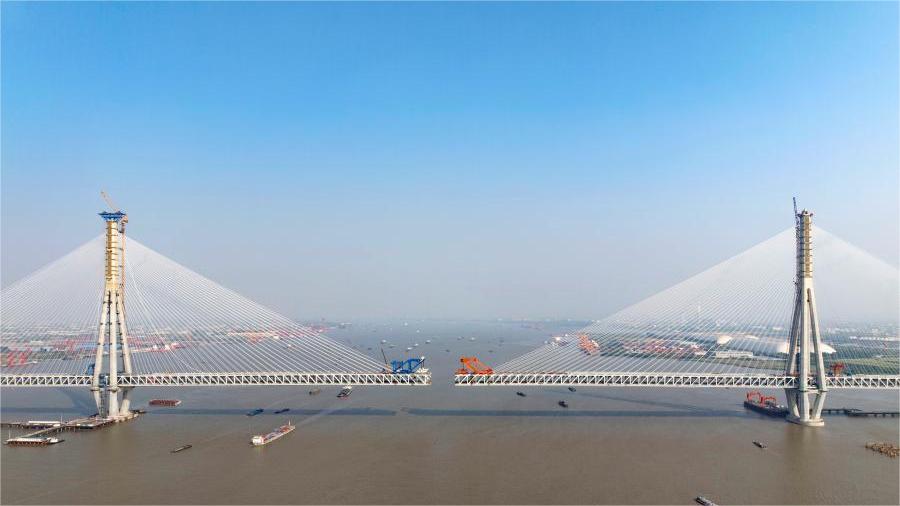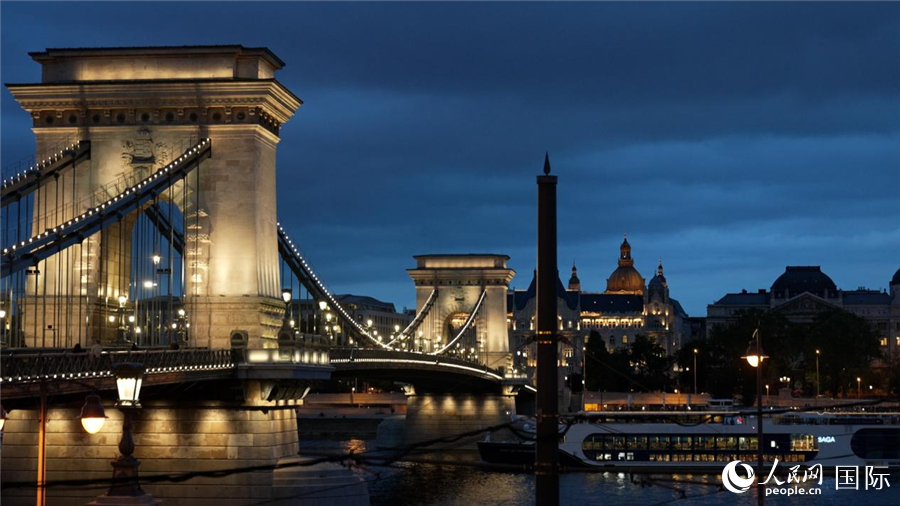Xi's European visit heralds new era of ties

President Xi Jinping arrives in Belgrade for a state visit to Serbia at the invitation of Serbian President Aleksandar Vucic, May 7, 2024. [Photo/Xinhua]
President Xi Jinping's six-day trip to Europe has opened new chapters of relationships with China's key partners, and the visit heralds a new era of ties with Europe through enhanced solidarity, mutual trust and confidence, according to senior diplomats and analysts.
Xi's recently concluded tour of France, Serbia and Hungary, which included over 30 diplomatic engagements with leaders of the three countries between May 5 and 10, was a resounding success, with implications and significance far beyond the bilateral level, they said.
In France, the president's visit set the stage for reaffirming a longstanding partnership.
Beijing and Paris signed 18 bilateral cooperation documents in areas such as green development, aviation, agrifood, commerce and people-to-people exchanges.
In an interview with reporters after the visit concluded, Foreign Minister Wang Yi said that Xi and French President Emmanuel Macron had reached a host of key consensuses on developing bilateral relations, while agreeing to consolidate the strategic stability of bilateral ties and tap the broad potential of mutually beneficial cooperation.
Interactions between the two heads of state at Tourmalet — a pass in the Pyrenees mountains that is dear to President Macron because he enjoyed visiting his grandmother there when he was a child — marked a major highlight of Xi's France trip.
Wang said the extended talks in the Pyrenees added another memorable chapter to the exchanges between the leaders of China and France.
The Chinese president's trip to Serbian capital Belgrade and Hungarian capital Budapest cemented the elevation of ties with two of China's key European partners. This was underpinned by a host of bilateral agreements to build up economic, trade and people-to-people exchanges.
In Belgrade, Xi and Serbian President Aleksandar Vucic signed a joint statement on building a China-Serbia community with a shared future in the new era, while China unveiled six major steps to support the move, including a free trade agreement and the opening of more direct flights.
A landmark moment of the trip was the gathering of around 20,000 people in front of the Palace of Serbia to greet the Chinese president, with the crowds waving the flags of the two nations and cheering for China.
The moment "evoked a keen feeling on the genuine sentiment of the Serbian people toward the Chinese people and their profound respect for President Xi", Wang said.
In Budapest, the traditional friendship was harnessed as the two nations pledged to build an all-weather comprehensive strategic partnership for the new era.
Hungarian Foreign Minister Peter Szijjarto described the visit as "a milestone in bilateral relations", saying that the elevation of bilateral ties reflected the rightfulness of the nation's China policy.
"We are very happy with the Chinese investments in Hungary. We encourage more to come because they're modern, state-of-the-art investments that create a lot of jobs. This is good for our national economy, good for our people and our families," he said.
Szijjarto said that Hungary, which will hold the rotating presidency of the European Union starting on July 1, rejects the approach of "de-risking" or decoupling.
"We do not consider China as a threat. We don't want the world to be divided into two blocs again. We want connectivity to come," he said, adding that his country will advocate basing EU-China relations on mutual respect.
"Hungary is the best example showing what kind of benefits you can get out of respectful cooperation with China," he said.
"If we had not encouraged these Chinese companies to (come to) Hungary, and if we had represented these decoupling types of approach, we would have tens of thousands fewer jobs," he said.
Wang and analysts have also stressed the significance of the trip for China-EU relations, as Xi has appealed to the EU for collective efforts in adhering to dialogue and cooperation, deepening strategic communication and enhancing strategic mutual trust. He also rejected rhetoric about China's "overcapacity", using facts and numbers.
Feng Zhongping, director of the Institute of European Studies at the Chinese Academy of Social Sciences, said that Xi's trip to Europe has strengthened expectations for the stability of China-EU relations.
"The enhancing of pragmatic cooperation between China and the three countries showcased the potential for stronger trade and economic ties with other European nations," he said.
Feng described the joint statement between China and France on the situation in the Middle East as another highlight, adding that the two nations have demonstrated solidarity in their shared appeals for the cessation of hostilities during the upcoming Paris Olympics.
Jack Midgley, principal of the global consultancy Midgley &Co, said that agreements on the Belt and Road Initiative and electric vehicles, including France indicating that it would welcome China's EV giant BYD, were among the most important outcomes of Xi's trip.
Midgley, who is also an adjunct associate professor in the security studies program at Georgetown University in Washington, said all these results were achieved in "a bilateral way" rather than through the bureaucracy of the EU.
"This is the way to do constructive relationships," he said. "You do them bilaterally, on the basis of shared interest."
Yifan Xu in Washington contributed to this story.
Photos
Related Stories
- Xi concludes Europe trip with clear message on fortifying cooperation
- Xi attends farewell event held by Hungarian PM Orban
- Xi's visits to France, Serbia, Hungary chart course for future: Chinese FM
- Xi stresses breaking new ground in ideological, political education
- 'New starting point' for 75-year ties
- Xi returns to Beijing after state visits to France, Serbia, Hungary
Copyright © 2024 People's Daily Online. All Rights Reserved.









